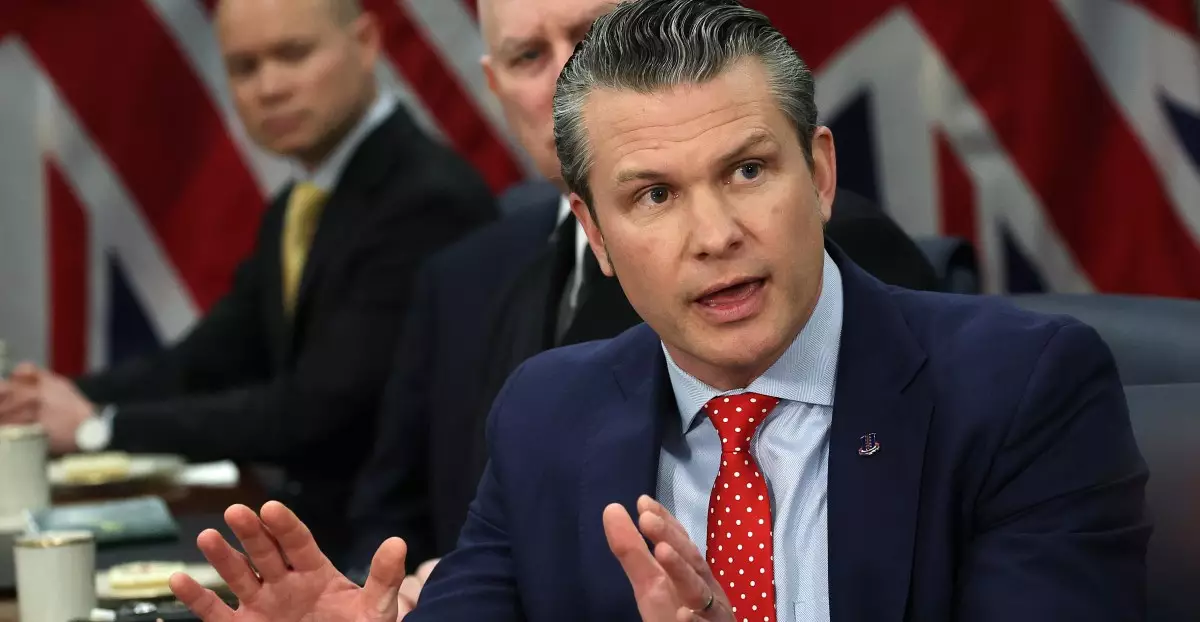In an era where digital security is paramount, the recent blunder of adding a journalist to a military strategy chat serves as a stark reminder of the risks entailed in careless communication. The incident involving The Atlantic’s editor-in-chief, Jeffrey Goldberg, and the “Houthi PC Small Group”—a Signal chat among senior officials in the Trump administration—exposes a critical lapse in operational security. As world affairs become increasingly complex and interconnected, the need for stringent protocols around sensitive discussions has never been more vital. This misuse of communication tools not only jeopardizes national security but also raises ethical concerns about transparency and accountability.
Can Lax Security Become the New Normal?
The involvement of high-profile government figures, including Vice President JD Vance and Defense Secretary Pete Hegseth, in a casual chat about military operations illustrates a disturbing trend: the normalization of lax security measures in crucial conversations. Utilizing consumer-grade messaging apps, despite the supposed end-to-end encryption, for discussions that dictate military action is not just imprudent—it’s reckless. The stated intention of Signal’s encryption is to shield sensitive discussions, yet the very introduction of an inadvertent participant highlights its vulnerabilities. It’s almost mind-boggling that officials were so careless, turning an important conversation into a public spectacle.
Public Reaction: From Curiosity to Outrage
The public’s reaction to this incident is a mixed bag; while some are understandably curious about the military intentions discussed, others express outrage over the lack of professionalism exhibited by those in power. Celebratory emojis exchanged among group members after reports of military operations convey a disturbing nonchalance towards human life that can be lost in military actions. This trivialization of serious decisions reflects a mind-set that must be scrutinized—are we employing appropriate checks and balances to ensure accountability from our leaders?
The Implications of Poor Protocols in Military Strategy
Rich insights from national-security lawyers underline a glaring truth: it is untenable that plans for military operations were even discussed on such unapproved platforms. This negligence could lead to irreparable consequences—not only in security leaks but also in eroded public trust. When the wrong messages reach the wrong hands, the implications can be catastrophic. Furthermore, it raises questions about whether those tasked with protecting national interests are adequately addressing the very infrastructures meant to safeguard them.
Turning Point: Rethinking Digital Communication Policies
This incident should serve as a wake-up call. It begs the question: What measures are being taken to revise digital communication policies? This might necessitate the implementation of stricter guidelines regarding the types of tools used for communication among high-ranking officials. In doing so, we need to advocate for adopting more secure alternatives that are vetted specifically for government use—individuals involved must recognize their responsibilities and acknowledge the weight their words carry, especially when national security hangs in the balance.
The need for reflection and rigorous reform in communication strategies cannot be overstated. The stakes are too high to allow human error and carelessness to undermine our national interests. It is imperative that we prioritize accountability and transparency moving forward, ensuring that our communication protocols reflect the seriousness of the duties held by those in power.


Leave a Reply